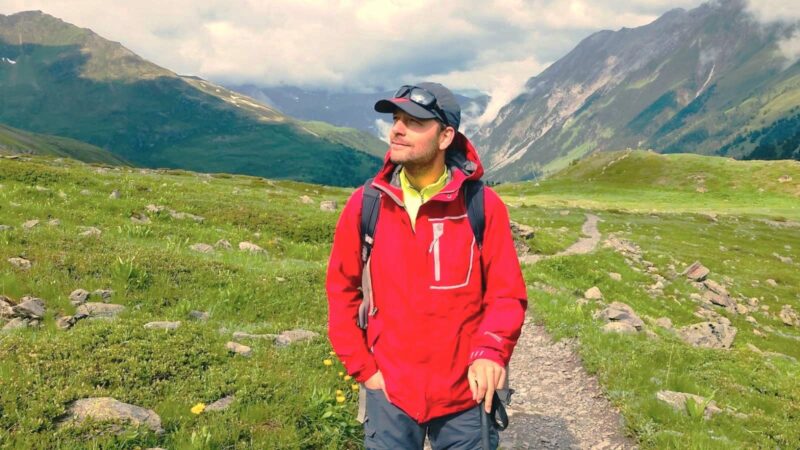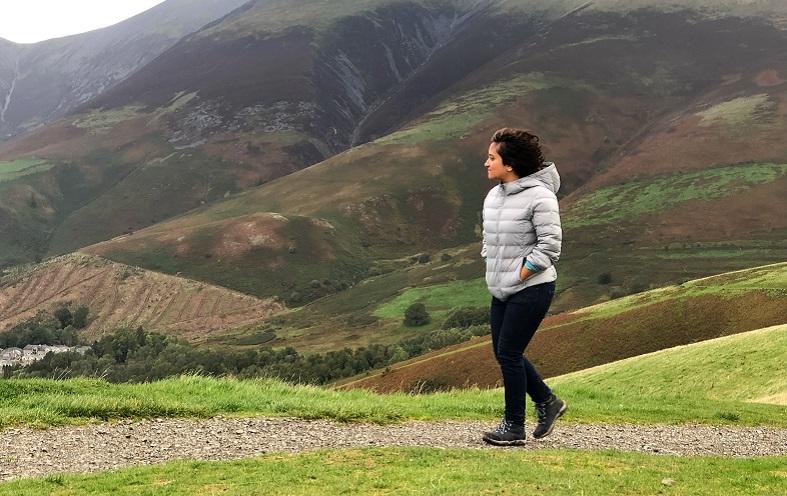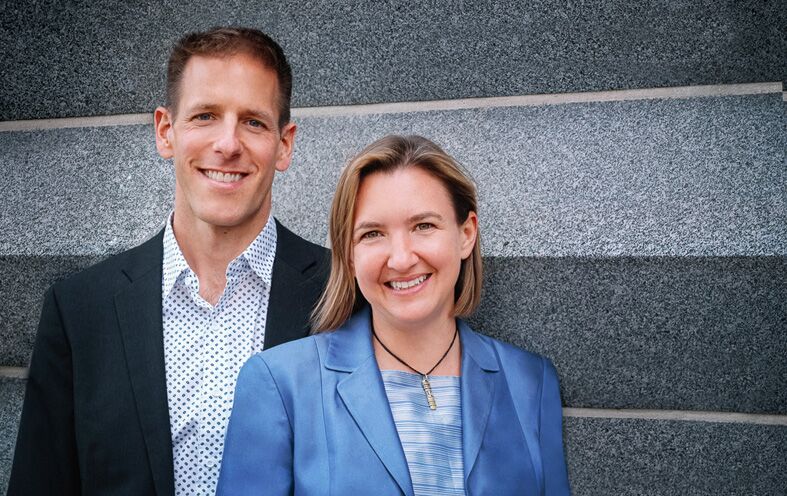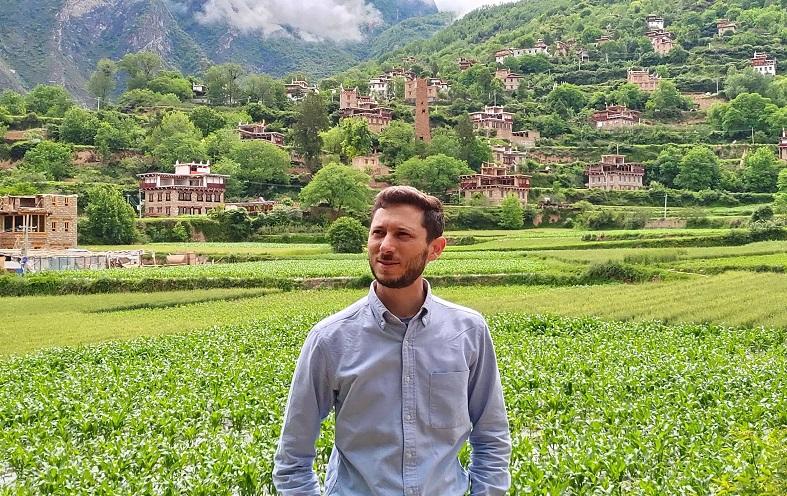
Even before terms like ecotourism and sustainability became mainstream, there were committed individuals who were advocating for a fair and more responsible form of travel. One of those pioneers is Costas Christ.
An award-winning editor of National Geographic Traveler and founder of Beyond Green Travel, Costas in this interview looks back at the beginnings of the ecotourism movement and shares his views on the future of responsible travel. He also highlights the immense damage which the current travel restrictions are causing to conservation efforts and why we need to carefully balance calls for air travel restrictions with the benefits which tourism brings to many communities and livelihoods around the world.
Costas, as one of the world’s top sustainable travel experts, your work has taken you to more than 130 countries. Do you remember how you first got involved with sustainable tourism?
This question requires a bit of a journey to answer, so allow me to take you along. Growing up, I loved nature and my ambition was to become a wildlife biologist. In 1978, I was accepted as an assistant on a Harvard University primate field study in Kenya. I found myself in a remote area, not only studying wild monkeys, but also being witness to a booming safari industry that was making faraway investors wealthy, while locals living closest to the wildlife that tourism depended upon were struggling in poverty. The result was an escalating conflict between tourism, wildlife authorities and the local community. Things reached a boiling point when angry villagers tried to burn down the safari lodge near my research camp.
That troubling experience convinced me that a new model for tourism was needed. On quiet nights around the campfire, I thought to myself that if local people’s lives were directly improved by tourism then they would become partners and allies in protecting rare and endangered species. My interests shifted from being a wildlife biologist to creating a new vision for tourism as a catalyst to help save nature and alleviate poverty.
After those early years in Kenya, I traveled to different countries meeting other people who shared a similar goal on how to make tourism a powerful force for doing good.
In 1991, a dozen of us who were united in our passion to change tourism gathered in a farmhouse outside of Washington DC. It was there, over two days of deliberation, that we officially defined ecotourism for the first time as “Responsible travel to natural areas that protects nature and sustains the well-being of local people.”
This was the meeting that launched The Ecotourism Society, and as a founding member and later as Chairman, I spent most of the 1990s traveling the world to promote ecotourism practices as widely as possible.
It was the early ideas associated with ecotourism that eventually led to the birth of the sustainable tourism movement as we know it today.
What are some of the “game changing” moments in the history of sustainable tourism?
The moment that sparked the larger sustainable tourism movement came in 2002, when the United Nations hosted the first Global Ecotourism Summit in Quebec City. Delegations came from Europe, Asia, Africa, the Americas and also, Australia. Although I had been and remain a champion for ecotourism, I was starting to have doubts about ecotourism’s ability to positively impact a tourism industry that was already growing rapidly.
To put this into perspective, in 1950 there were approximately 25 million international tourism arrivals. By 2002, it was approaching one billion and counting. At the time, I thought to myself that even if ecotourism had been 100 percent successful – which it wasn’t, as there was a lot of learning from mistakes along the way – it might change perhaps 20 percent of the global tourism industry. We needed to think bigger and bolder.
Why should just African safari camps or Costa Rican jungle lodges be committed to the principles of saving nature and benefitting local communities? What about the rest of the tourism industry – airlines, cruise ships, urban hotels, beach resorts, and so on?
I began to make the case that we needed to take the ideas that began with ecotourism and apply them to the entire global tourism industry – all of it, from top to bottom – to have a global impact that would truly transform travel, and that is what became known as sustainable tourism. The premise was that we needed to mainstream the ideas that started with ecotourism and make them part of the fabric of ALL tourism.
In 2005, the United Nations Foundation asked me to serve as an advisor to help establish sustainable tourism criteria. Together with other early ecotourism advocates, we created global sustainable tourism criteria under three key pillars: environmentally friendly practices, protection of natural and cultural heritage, and social and economic benefits to local people. This became the foundation for what is now known as the Global Sustainable Tourism Council (GSTC).
Ted Turner, the cable news television pioneer and conservation philanthropist, provided the funding that established the United Nations Foundation, and it was Ted (he prefers that over being called “Mr. Turner”, hence the title of his autobiography, Call Me Ted) who announced the global sustainable tourism criteria at the 2008 World Conservation Congress.
In more recent years, I have served as a sustainable tourism advisor for Ted, who has put more than two million acres of land under natural habitat restoration in North America – what he calls “rewilding nature” – a major conservation achievement.
How has your view on sustainability and tourism changed over the years?
I still believe that sustainable tourism represents the future of travel. We either get it right, or the travel industry is going to continue to be a growing target of environmental groups and others, demanding that travel companies take more action to operate responsibly.
Twenty years ago, if I was doing this interview, I would have said that while we saw encouraging signs on sustainable tourism’s ability to help alleviate poverty, support cultural heritage, and protect biodiversity, it remained largely an experiment. Today, I would say sustainable tourism is no longer an experiment. There are numerous well documented case studies from around the world that have demonstrated the positive impacts that result from sustainable tourism practices in action.
Rather, the key question now is how far will the travel industry take sustainability seriously into their day to day operations and build it into their corporate mission to achieve a collective global impact – from mitigating climate change, to improving local people’s livelihoods, to protecting marine and terrestrial ecosystems.
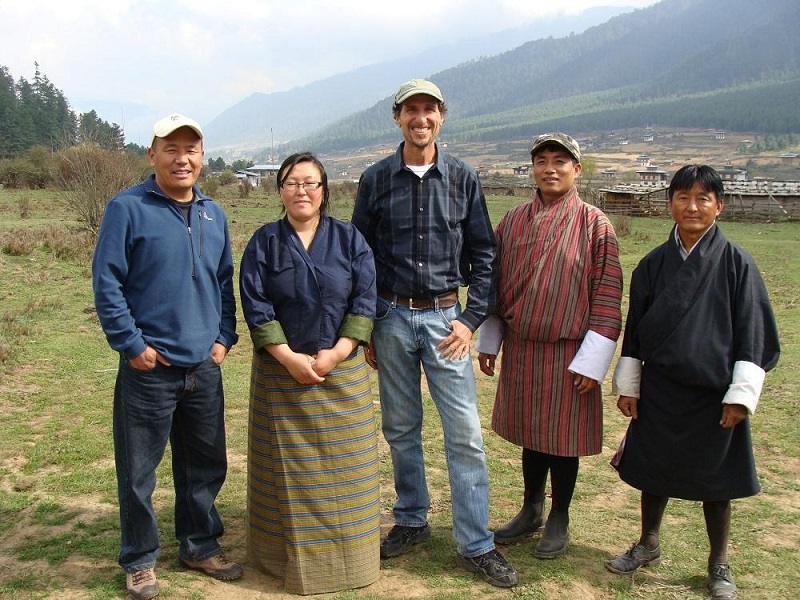
Will the travel industry rise to meet the challenge of sustainability? Which are the main bottlenecks or hurdles preventing this?
To me, it is not so much a matter of whether the travel industry will rise to the challenge; rather, it must rise to the challenge of sustainability. Think of it this way: Have you ever seen a travel brochure advertising a wonderful tropical island vacation with images of beaches covered in plastic trash and snorkeling on dead coral reefs? Or a wellness holiday promoting a healing massage outdoors in a clear-cut rainforest? Of course not.
The reason is that when you get right down to it, the travel and tourism industry sells nature and culture as its primary “product”.
Sure, travel companies complement this by offering rooms with a view, great guest service, excellent food and wine, helpful guides and so on. But let’s not fool ourselves into thinking that people travel to Africa because they want to sip a gin and tonic at sunset on the veranda of a Serengeti luxury lodge. They travel to the Serengeti to witness the last great wildlife migration on Earth, and yes, while they are also enjoying that gin and tonic at sunset.
We need to recognize that the foundation of the travel industry is built upon selling nature and culture. Hence market trends declaring that “authenticity is the new luxury”, along with growing numbers of travellers seeking “cultural sense of place”.
Given that the travel industry trades in nature and culture, then it needs to also invest in protecting its “product” for future generations. Otherwise, travel will be nothing more than “get what you can now and to hell with the future”- the very antithesis of sustainable tourism. And this is without even talking about the need to embrace sustainability because it is the morally right thing to do for anyone who cares about the future of life on Earth.
How may the coronavirus pandemic change travel as we have known it – better or worse?
It will result in a rethinking of what really matters in life – time with friends, family, a healthy environment, a sense that we are all in this together beyond borders, and a desire to make the world a better place for our children and grandchildren. In that sense, we have a transformative opportunity to reset the tourism industry.
Perhaps the biggest lesson to come out of the current pandemic is that we cannot have personal health and well-being without planetary health and well-being. And that gets to the heart of what sustainable tourism is about – an inspiring and enriching travel experience that also results in a positive impact on people, planet, and wildlife. Those destinations and travel companies that understand this today will be the travel industry leaders of tomorrow.
What would be your post-pandemic reflection on the op-ed you wrote for the New York Times a few months back, on climate change, flying and saving nature? What has changed?
In that essay, I postulated a world in which travel came to a sudden stop – what would happen if we halted air travel, as some well-meaning climate activists in the Flight Shame movement were advocating. Would it save nature or unleash a global conservation crisis?
I was making the case that, as Kaddu Sebunya, President of The African Wildlife Foundation put it to me, “Tourism is one of the most important and successful tools conservationists have in the battle to protect the world’s last great wilderness areas.”
My point was to help people understand that the goal should not be to stop travel, but to get it right, and in terms of air travel that means more investment by aviation companies to reduce their carbon footprint, not just telling passengers to buy carbon offsets – which can help, but is not a long term solution.
Two months after I wrote that essay, the global pandemic hit, and we really have seen what will happen if air travel suddenly stops. We are witnessing this in real time – not only the tragic suffering of people stricken with this terrible illness, but also the dramatic drop in tourism revenues that has upended decades of conservation work.
While we are hearing reports of blue skies returning to formerly smog filled cities like Beijing and Delhi and polluted rivers starting to run clean again, which is welcome news, most of this has been the result of a global manufacturing shut down, with factories closed and city streets devoid of millions of vehicles spewing exhaust.
But the shut down in global tourism has had a different impact: poaching is having a resurgence in the absence of tourists, and the loss of tourism revenues is hampering governments’ ability to monitor for illegal activities in parks and reserves.
In Africa alone, more than 11 million acres of wilderness are being protected directly by ecotourism companies. But without tourism revenues, these same places are now facing serious threats for their future.
Millions of people’s livelihoods are headed into poverty as the loss of tourism jobs has an even bigger impact in developing countries. The pandemic has shown just how important tourism is to conservation and poverty alleviation around the world – and it has also shown us why sustainable tourism practices are so important.
You have given numerous keynote speeches and have moderated many panels on sustainable travel. Are there any topics which you think do not get the attention they should, in the debate surrounding tourism and sustainability?
For me, it comes back to what I mentioned earlier: there needs to be more attention on making a stronger connection between the tourism industry’s reliance on selling nature and culture and its responsibility to invest in protecting cultural and natural heritage now and for future generations.
In too many conferences and forums, sustainability is discussed as if it is an add-on, something optional, when it is really something that is essential – for ethical reasons and I would also add for business success.
Similarly, there needs to be more attention paid to how we scale sustainable tourism globally to truly transform the travel and tourism industry through positive collective impact. We need to get to a place where tourism is understood by definition to include sustainability.
It is time to move away from the plethora of competing awards for 10 best green companies and so on, and shift the focus on how to scale sustainable tourism practices to be the new normal for tens of thousands of travel businesses.
How important is storytelling for encouraging tourism industry players and travelers to embrace sustainable travel – how can marketing help us obtain the critical mass needed to really see a change in practices and behavior?
Ultimately, it comes down to how each of our travel choices can make a huge difference.
Storytelling, both visually and in words, is extremely important to inspire and educate travelers.
For example, the travel media can help dispel the false choice where people think you have to decide between a vacation that is good for the planet and a vacation that is fun and relaxing. They are not mutually exclusive at all, and the travel media can do a better job of making that clear.
More destinations are also beginning to rethink how they approach destination marketing. Right now, I am working on a sustainable tourism destination stewardship plan for Big Sur, California, which includes seventy miles of scenic coastline. An important part of that plan is identifying ways to help travelers understand how they can be part of the sustainability solution to protect Big Sur while also having a great holiday.
Tourism boards will need to move away from measuring success solely based on growth in visitor numbers to also measuring success based upon positive impacts from tourism – economically, culturally, for communities, and for conservation.
What’s next for Costas Christ?
On the local level, during the spring and summer months, I put on my farmer’s hat and also turn my attention to growing blueberries and other crops on the organic farm where I live, in Maine. It keeps me connected to the Earth and to sustainability in my own life.
On the global level, I was excited to meet with President Obama last year about an ocean conservation and climate change initiative. I was asked to lead the working group on sustainable tourism related to this and discussions are now actively underway for a global summit in 2021 with Obama as a co-convener.
Thank you, Costas.
Connect with Costas Christ on LinkedIn and Twitter.
Did you enjoy our interview with Costas Christ on the origins of ecotourism and the future of sustainable travel? Thanks for sharing!


